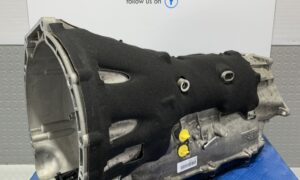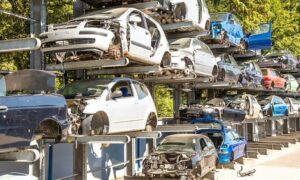Initially welcomed by small-town locals, Brian and Michele Hall were welcomed in the local paper, when they relaunched their Land Rover Defender restoration shop in 2017. The business would import parts and offer restoration services for vintage Land Rover aficionados. Michele, a native of Gig Harbor, graduated from high school there and her husband Brian Troy Hall, a transplant from Orange County, California, turned his hobby into a business. Yet, not all was as it seemed. The Halls are facing mounting legal troubles amidst allegations of restoration fraud. The unfortunate incident may lead to criminal charges for the Halls, and further damage the controversial Land Rover Defender restoration industry.
Recently, customers filed a major lawsuit against the Halls and their company, Defenders Northwest, LLC, and related parties (Autohome USA), claiming that Brian and Michele Hall are fraudsters and when they are not defrauding customers, they are marketing and selling illegal Land Rover Defender parts and restorations through their seemingly fancy website.
The Halls and their business are based in Gig Harbor, Washington, where their website purports to provide parts and restoration services to the tightly-knit Land Rover Defender community. The 63-page lawsuit claims that the Gig Harbor couple with the aid of their part-time lawyer and consultant misappropriated a vintage Land Rover they were contracted to restore. Allegedly, the Halls kept making up excuses why the truck could not be delivered, until the customers hired lawyers and the lies collapsed like a house of cards.
Allegedly the vehicle entrusted to Defenders Northwest was used to obtain sponsored parts and car events without the customer’s permission. According to the plaintiff’s lawsuit, the restoration project, which ran up to mid-six figures of unaccounted fees and fabricated invoices, took almost 8 years, when finally “Brian and Michele just refused to deliver the truck and started to demand more money,” explains attorney that specializes in automotive industry litigation, Alessandro Assanti. According to the documentation in the lawsuit, the project should have been completed in less than six months.
The niche industry that focuses on the repair and restoration of vintage Land Rover Defenders is already highly controversial. Defender trucks with models such as Defender 90, Defender 110, and the more esoteric, Defender 130 were banned from being imported into the U.S. The new Defenders are different in design and seem to appeal to a different type of customer than the vintage models that are known for their Safari-oriented mission that leads to a cult following from real off-road enthusiasts. Restored vintage Land Rover Defenders are often sold for high dollars that rival Mercedes G-Wagons and fall into the hands of wealthy owners who never use them for their intended off-road adventures. The restored vehicles at times violate import laws and state and federal laws that address roadside safety standards. The legal complaint alleges that Defenders Northwest and the Halls operate an illegal restoration business that caters to customers who pay extra to register banned vehicles by using industry loopholes. Illegal Defender vehicles are regularly confiscated by federal agents of the Department of Homeland Security and CPB (Customs and Border Protection) when violations of import laws are documented. It is not surprising that the restored Defender market elicits additional scrutiny from the Department of Homeland Security.
The Land Rover Defender was marketed in the United States from 1993 through 1997, but changes to DOT regulations for the 1998 model year required side-impact door beams and front-seat airbags. These are safety modifications that were not economically viable for Land Rover, given that Defender SUVs are very low-volume vehicles. Due to its ultra-rugged reputation and its resemblance to classic Land Rovers of yesteryear, the Defender remains in high demand today; it creates a strong market for imported vehicles, and parts, and ignites the passion of enthusiasts from all walks of life. The Land Rover Defender remained cosmetically similar throughout its production run, making it difficult for a tyro to tell a legal 1988 Defender apart from an illegal 1998 Defender with older VIN identifiers. Many restoration shops take advantage of these similarities to lure in customers for restoration projects that are fundamentally criminal.
Low mileage Defenders in excellent condition command truly high prices that rival those of Mercedes SUVs and other exotic trucks. The multi-million dollar lawsuit against Defenders Northwest and the Halls alleges that there is a financial incentive for unscrupulous exporters and shops such as Defenders Northwest to swap VIN plates, leaving customers at substantial risk of having their vehicles confiscated.
Not all Land Rover Defender restoration projects violate U.S. laws. Some vehicles are retrofitted with modern parts but are considered legal in the eyes of U.S. customs inspectors.



































